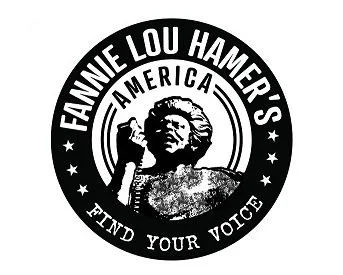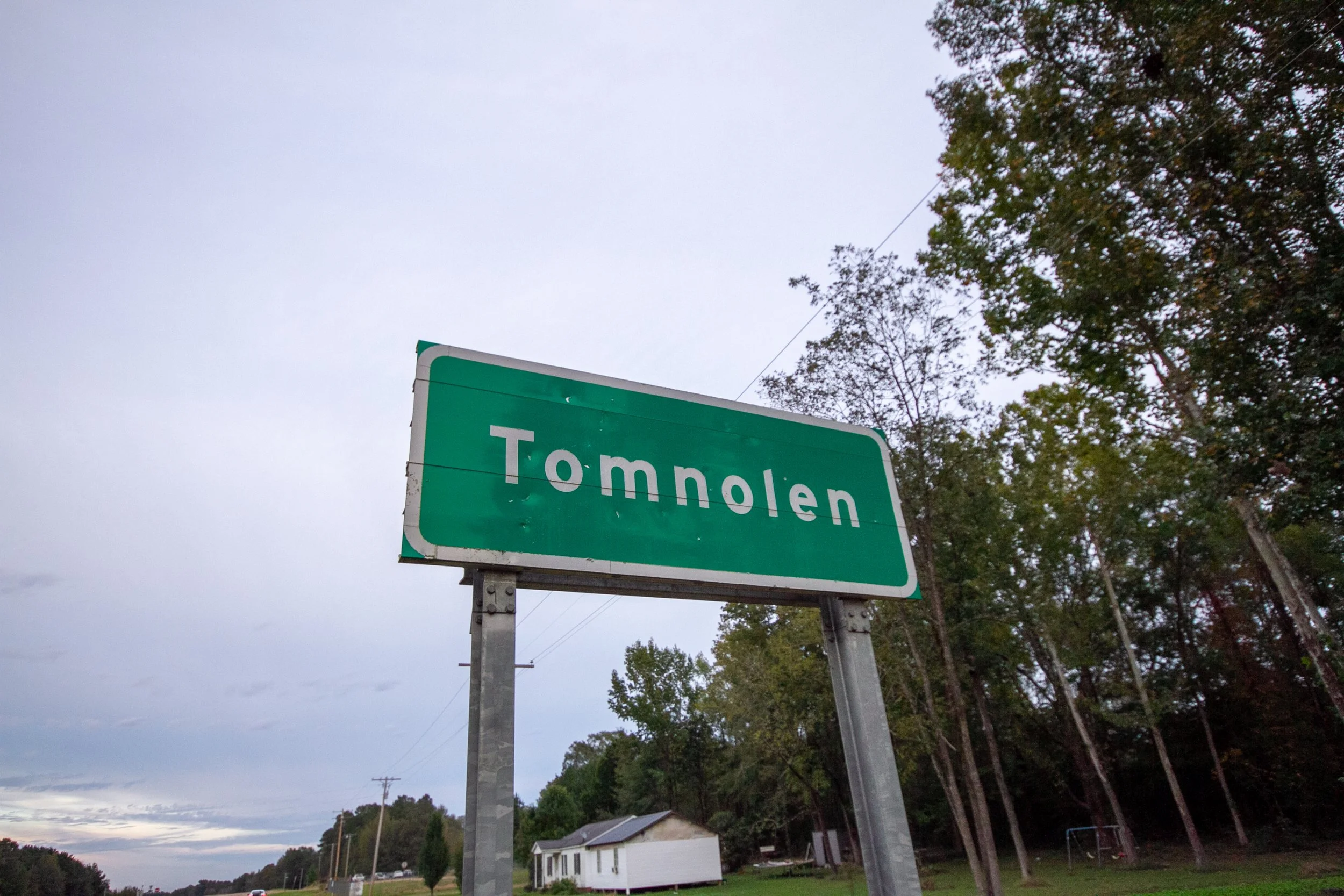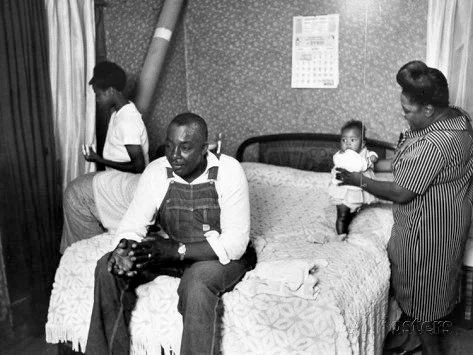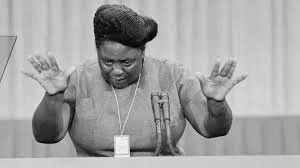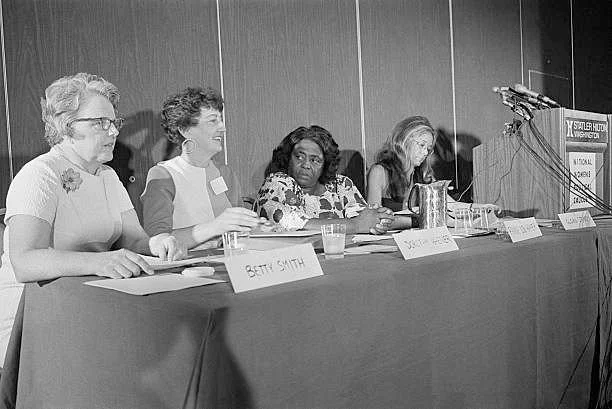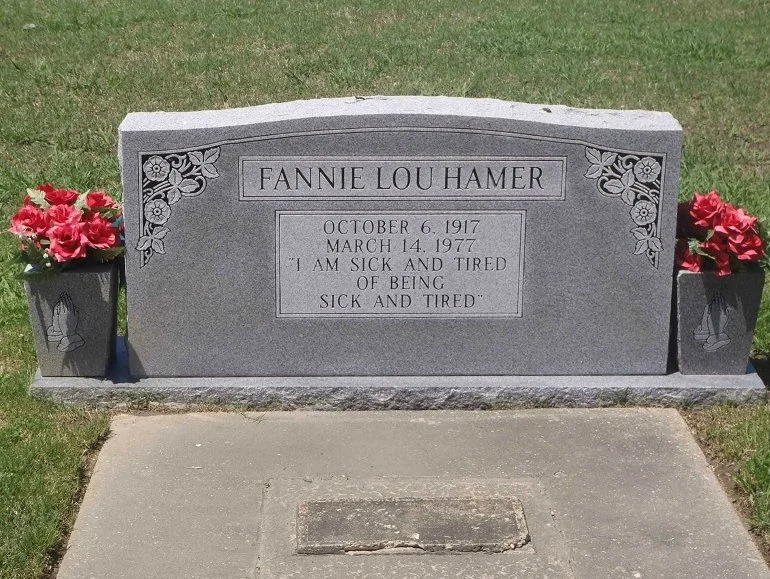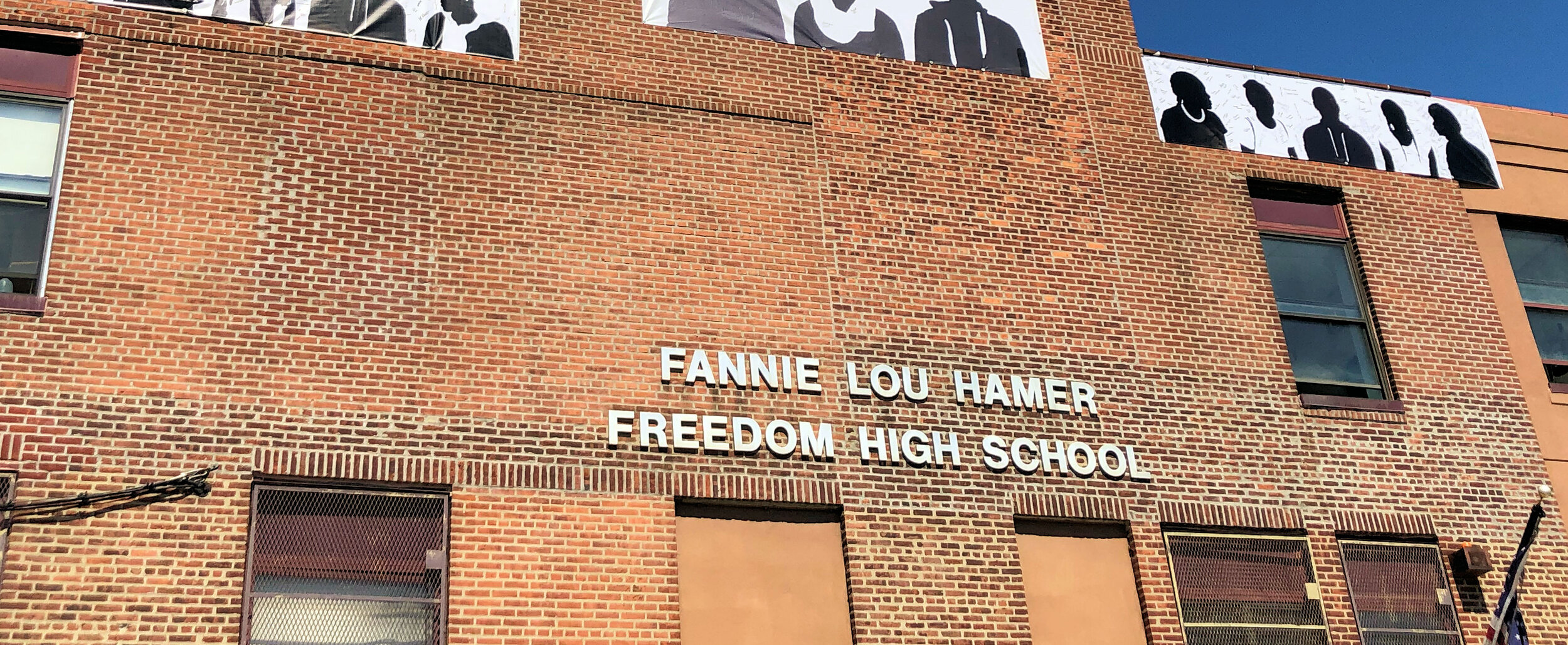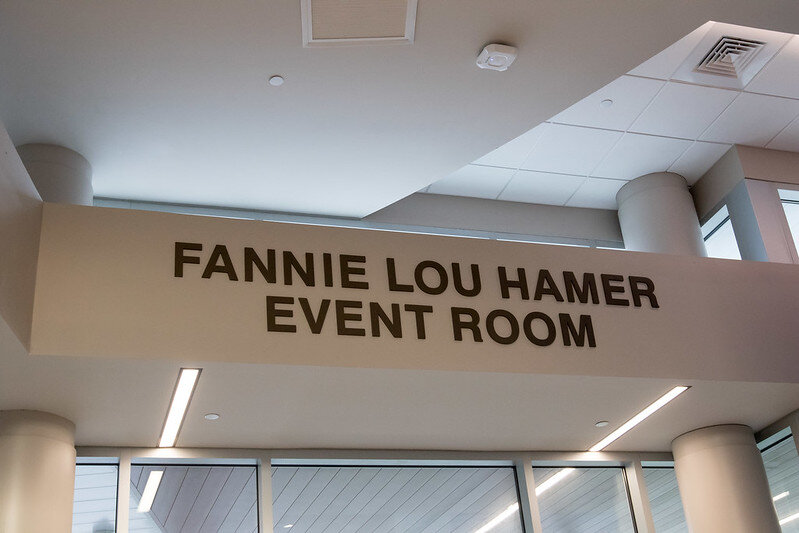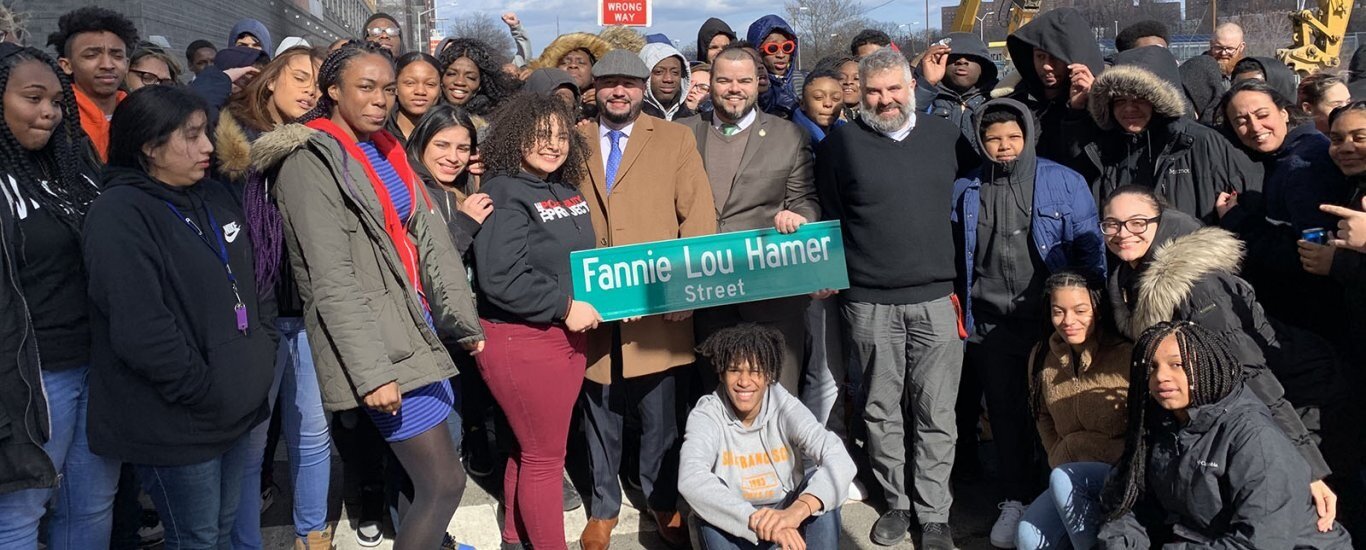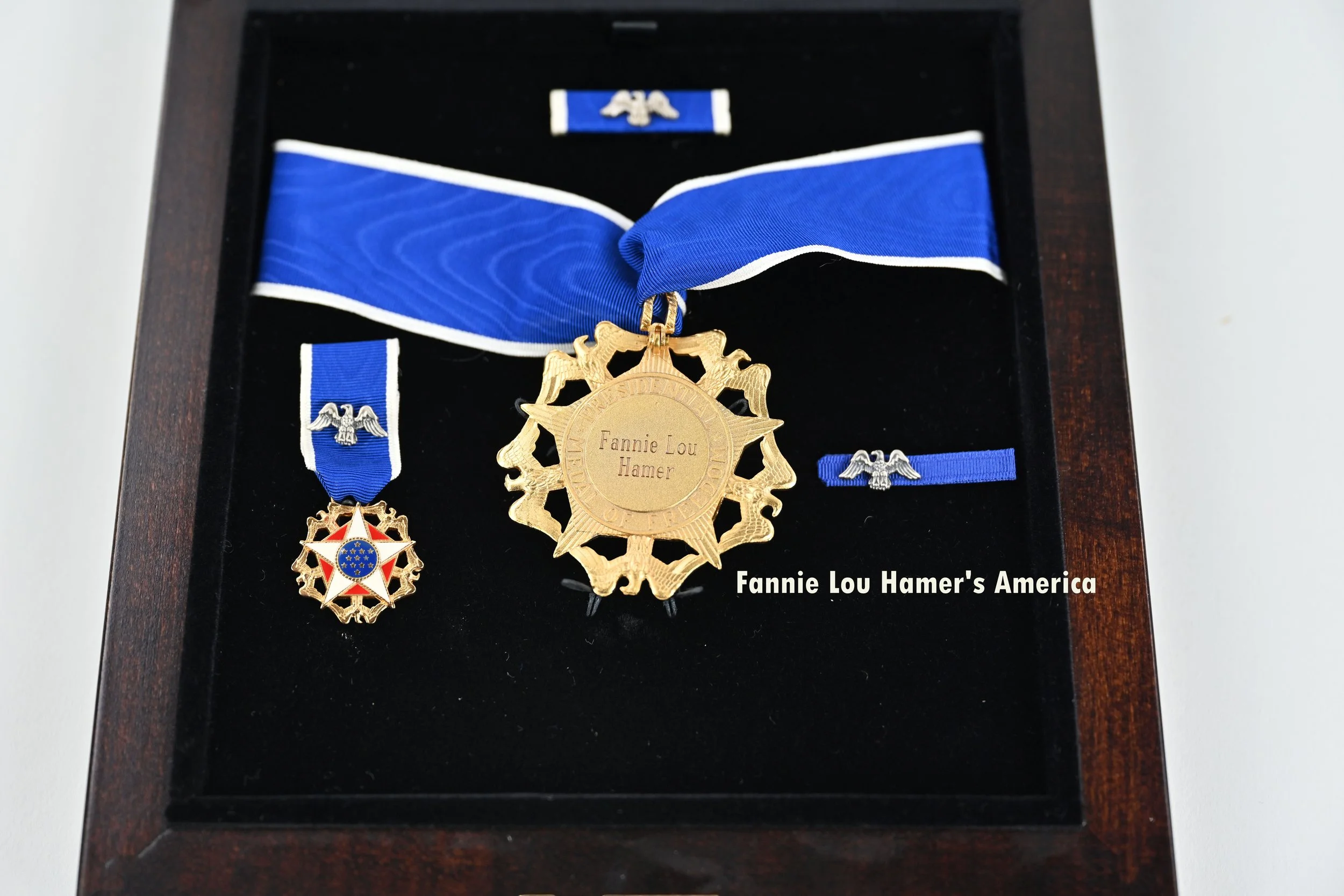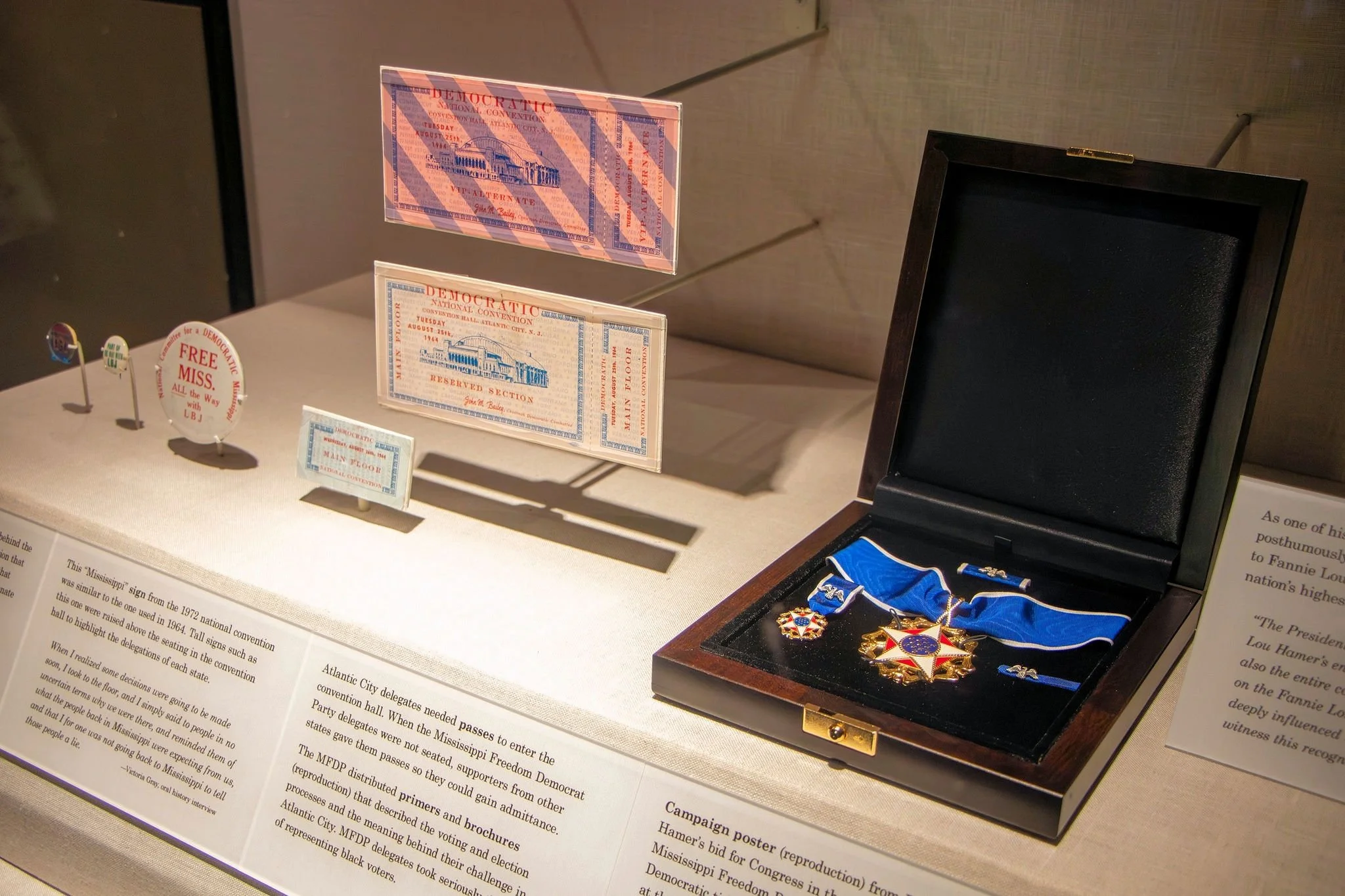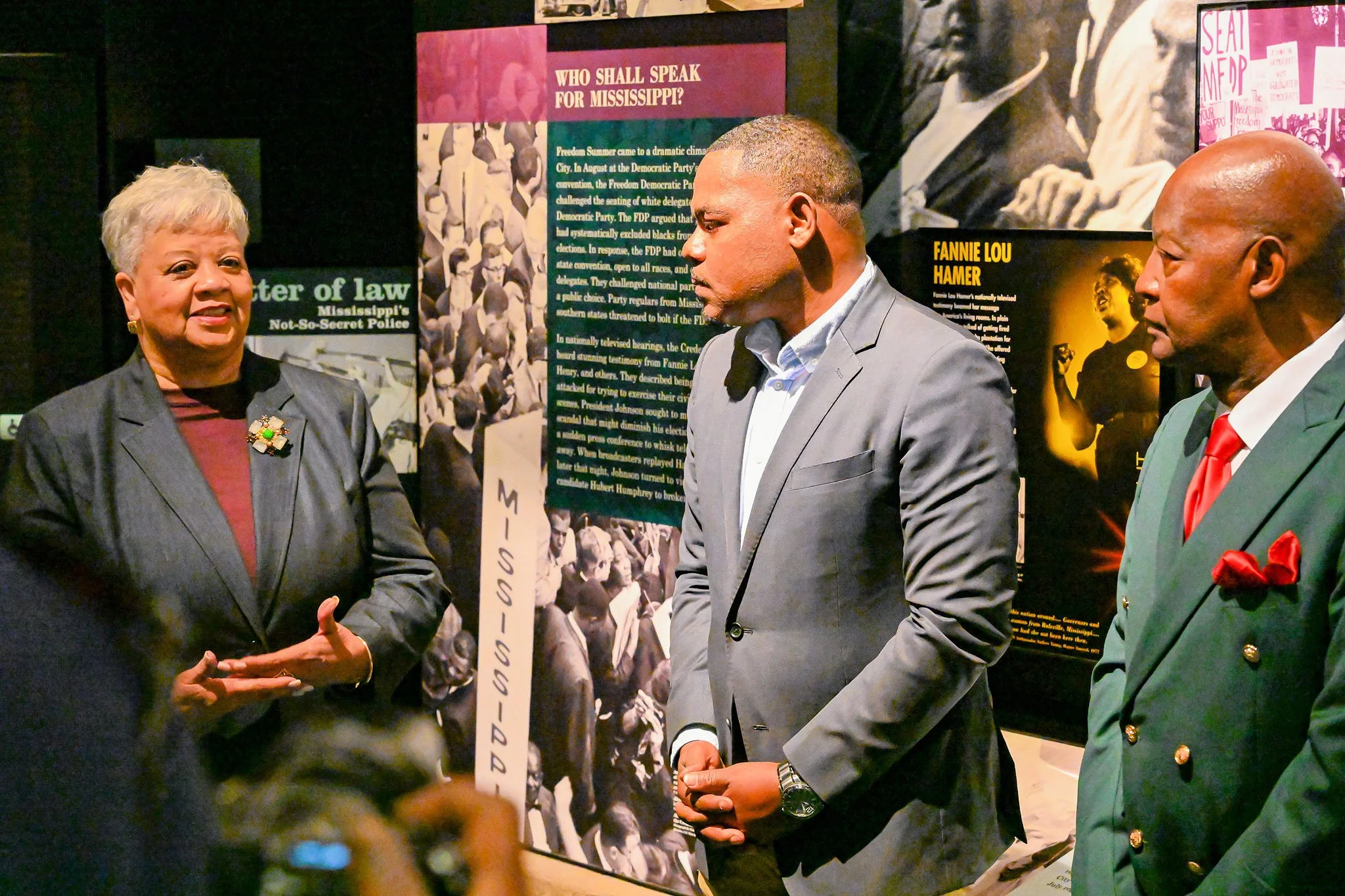Timeline of Fannie Lou Hamer’s Life and Legacy
By Maegan Parker Brooks, PhD & Monica Land
The sign for the town of Tomnolen in Webster County, MS.October 17, 1917 - Fannie Lou Townsend was born the 20th child of James Lee and Lou Ella Townsend. While Hamer often said she was born in Montgomery County, she testified in federal court in December 1963 that she was born in Tomnolen in Webster County, which borders Montgomery County. Her family moved to a plantation in the Mississippi Delta when she was two years old.Friends said Hamer likely said she was from Montgomery County because at that time, the U.S. mail was delivered to the nearest and largest county, which in the case of Hamer’s family, was Montgomery County. And when people were asked where they were from, they would name the county where they received their mail. Fannie Lou’s second husband, Perry “Pap” Hamer, was born and raised in the town of Kilmichael in Montgomery County.1919 - In search of work, the Townsend family moved to E.W. Brandon’s plantation in the Delta in Sunflower County, Mississippi.1930 - Fannie Lou left school so she could help her family financially by working full-time in the fields.January 6, 1938 - A marriage license was filed at the Sunflower County Courthouse in Indianola, MS for Fannie Lou and her first husband, Charlie Gray.May 1944 - Court documents show that Fannie Lou and Charlie Gray’s divorce was finalized.July 1944 - Fannie Lou Townsend Gray married Perry 'Pap' Hamer and moves to the W.D. Marlow plantation, four miles outside the city of Ruleville, Mississippi.(left to right) Vergie Ree in front of window, Dorothy Jean leaning behind Pap on the bed. And Fannie Lou holding Dorothy’s baby, Lenora (Nook).1944-1961 - Fannie Lou and Perry Hamer adopt two children who are relatives of Fannie Lou's, Dorothy Jean and Vergie Ree. They also care for Lou Ella Townsend, Fannie Lou’s disabled mother, while working on W.D. Marlow’s plantation.August 27, 1962 - Fannie Lou and Perry Hamer attend a mass meeting at William Chapel Missionary Baptist Church in Ruleville. There they learn from civil rights activists that Black people have a constitutionally-guaranteed right to vote.August 31, 1962 - Fannie Lou Hamer attempts to register to vote at the Sunflower County Courthouse in Indianola, Mississippi. She fails the registration test. As punishment for her attempt, as soon as she returns to the Marlow plantation where she worked and lived, she learned she had been fired as the timekeeper and evicted.September 10, 1962 - The first assassination attempt was made on Fannie Lou Hamer’s life. After being fired for trying to register to vote, Fannie Lou left her family and went to stay with friends, Robert and Mary Tucker in Ruleville. Night riders fired 16 shots through the window of their home striking the wall just above where Fannie Lou had slept the night before. She had fled the Tucker home at the request of her husband, Pap, who feared for her life.Fall-Winter of 1962 - Fannie Lou Hamer becomes the Student Non-Violent Coordinating Committee’s (SNCC) oldest voter registration worker. She attends workshops across the South to learn how to encourage people in her community to become politically active.January 1963 - Passes the voter registration test on her second try and becomes among the first registered Black voters in Ruleville, Mississippi.Fannie Lou Hamer’s booking photo taken at her arrest in Winona, Mississippi in June 1963.Hamer speaks before the Credentials Committee in August 1964.June 9, 1963 - Arrested in Winona, Mississippi on her return trip from a voter education workshop. Hamer and several other civil rights activists with whom she is jailed are beaten while in police custody. They were released on June 12.Fall 1963 - Delivers her first known recorded speech, “I Don’t Mind My Light Shining” at a Freedom Vote Rally in Greenwood, Mississippi. December 2, 1963 - Delivered her testimony in Oxford, Mississippi for the federal trial against the law enforcement officers who arrested her and had her beaten in Winona in June. Hamer was the star witness against Earl Wayne Patridge, Thomas J. Herod, William Surrell, John L. Basinger and Charles Thomas Perkins. All five men were later acquitted. Spring 1964 - Becomes the first Black woman to run for US Congress and the first Black person to run from her district since the 19th Century.April 24, 1964 - Fannie Lou Hamer, Aaron Henry, Rev. Edwin King and others founded the Mississippi Freedom Democratic Party (MFDP) in front of the M.W Stringer Masonic Lodge in Jackson, Mississippi.June 14, 1964 - August 20, 1964 - Nearly 1,000 college students - Black and white - travel to Mississippi. Organized by Fannie Lou Hamer, the MFDP, SNCC, and other civil rights groups, the students sought to work with the Black community in a voter registration drive. The effort became known as Freedom Summer.August 22, 1964 - On behalf of the Mississippi Freedom Democratic Party, Hamer testified at the Democratic National Convention in Atlantic City, New Jersey about the harassment and abuse she experienced in Mississippi for trying to vote. Her testimony is broadcast nationally.September - October 1964 - Fannie Lou Hamer travels to the West Coast of Africa, with other members of the Student Nonviolent Coordinating Committee (SNCC) including Julian Bond, John Lewis and Bob Moses, as honored guests of the Guinean government. Entertainer and activist Harry Belafonte raised the funds to send the group of 11 on the trip.December 1964 - Delivers her speech, “I’m Sick and Tired of Being Sick and Tired” before a crowd in Harlem alongside the Black Nationalist Leader, Malcolm X, who introduces her.January 4, 1965 - On behalf of the Mississippi Freedom Democratic Party, Hamer, Annie Devine, and Victoria Gray go to Washington D.C. to challenge the seating of the five US congressmen sent from Mississippi. They argue that since Black people are unconstitutionally prohibited from voting in Mississippi, the representatives do not actually represent the state and, therefore, shouldn’t be allowed to serve in the United States’ Congress.April 23, 1965 -Becomes the lead plaintiff in the lawsuit Hamer v. Campbell, suggesting that elections in Sunflower County should be suspended until black people are given a fair chance to register.June 1966 - Marched alongside Martin Luther King, Jr., Andrew Young and others, and sang and spoke to protestors along the Meredith March Against Fear in Mississippi. Spring 1967 - Fannie Lou Hamer’s eldest daughter, Dorothy Jean, dies from complications related to anemia, malnutrition, and inadequate access to health care. Fannie Lou and Pap Hamer adopt Dorothy Jean’s two young daughters, Jacqueline and Lenora.April 10, 1967 – As members of MACE (Mississippi Action for Community Education), Fannie Lou Hamer, Unita Blackwell, Amzie Moore and J.E. Killingworth testified about the severe poverty and hunger in the Mississippi Delta before a U.S. Senate subcommittee hearing, with Senator Robert F. Kennedy and others in attendance. Hamer's powerful testimony helped expose the immense suffering in the region and galvanized a national response to the issue of hunger in America. 1967 - Using tape recorded interviews Maria Varela and Julius Lester complete Fannie Lou Hamer’s autobiography, To Praise Our Bridges. Hamer was not happy with the book, and it was not released until many years after her death.1968 - With the help of the National Council of Negro Women, Hamer starts a “Pig Bank” in Sunflower County to provide protein to malnourished members of her community.August 20, 1968 - Formally seated as a delegate from Mississippi to the Democratic National Convention held in Chicago, Illinois. Hamer receives a standing ovation from the convention floor for her tireless advocacy of voting rights.1968-1972 - Fannie Lou Hamer receives honorary doctorates from numerous universities, including Columbia College and Tougaloo College. She also was named the “First Lady of Civil Rights,” by the League of Black Women and she received the “Noble Example of Womanhood” and the Mary Church Terrell Awards during this period.1969 - With money she raised by speaking to audiences across the country, Hamer buys the first 40 acres of “Freedom Farm,” a cooperative established to provide food and jobs for people in her community. Freedom Farm eventually grows to nearly 700 acres and becomes the third largest employer in Sunflower County.Fannie Lou Hamer quiets the crowd at the Democratic National Convention in Chicago, Illinois in 1968.(left to right) Betty Smith, former vice chairman of GOP in Wisconsin; Dorothy Haener, International Representative Women's Department United Automobile Workers Union; Fannie Lou Hamer, civil rights leader from Mississippi; and Gloria Steinem, member, Democratic National Policy Council.May 27, 1971 - Spoke out on ABC News about what President Richard Nixon called an “unnecessary tragedy”, when 18-year-old track star and Drew, Mississippi resident Jo Etha Collier was randomly murdered by a white man hours after her high school graduation.July 10, 1971 - Spoke at, and participated as a founding member of, the National Women’s Political Caucus in Washington, D.C. Other founding members included Gloria Steinem, Shirley Chisholm, Betty Friedan, Bella Abzug.July 13, 1972 - Hamer is an official delegate from Mississippi to the Democratic National Convention, where she offers a speech in support of Frances Farenthold’s candidacy for Vice President.1972-1976 - Helps secure affordable housing for people in Ruleville, while traveling nationally to raise funds for Freedom Farm and advocating for prison and poverty program reforms in Mississippi.October 31, 1976 - Virginia S. Tolbert, the mayor of Ruleville, Mississippi declares it Fannie Lou Hamer Day. During a special program honoring Hamer, the guest speaker was Charles Evers, mayor of Fayetteville, Mississippi and brother of slain civil rights leader Medgar Evers. This is the first known proclaimed “Fannie Lou Hamer Day”. 1976-1977 - Aggressively battles breast cancer, hypertension, and diabetes.March 14, 1977 - Dies of heart failure at a hospital in Mound Bayou, Mississippi. Newspapers across the nation report on Hamer's expected, but tragic passing. March 20, 1977 - Funeral services for Fannie Lou Hamer are held at William Chapel Church in Ruleville, Mississippi where she first entered activism. Guest speakers included Andrew Young, Vernon Jarrett, Dorothy Height, Ella Baker, Stokely Carmichael, John Lewis and many others. The number of speakers and mourners more than doubled the 2,500 residents of Ruleville. March 21, 1977 - The three-and-a-half hour funeral service went so long on March 20, Hamer had to be buried the next day.Example of Hamer’s Legacy.
1992 - At the initiation of Ward 3 Councilman Kenneth Stokes, the Albermarle Reading Center in Jackson, Mississippi, is renamed the Fannie Lou Hamer Library.1993 - Fannie Lou Hamer is inducted into the National Women’s Hall of Fame, the nation’s first and oldest nonprofit organization and museum dedicated to honoring and celebrating the achievements of distinguished American women.1994 - The Fannie Lou Hamer Freedom High School opens in the Bronx, New York. The Fannie Lou Hamer Middle School also in the Bronx opens for the 2004-2005 school year. July 27, 2004 - The Democratic National Convention honors Fannie Lou Hamer on the 40th Anniversary of the Mississippi Freedom Democratic Party’s Credentials Committee Challenge.July 27, 2006 - The United States Congress reauthorizes the 1965 Voting Rights Act and names it the Fannie Lou Hamer, Rosa Parks, and Coretta Scott King Voting Rights Act Reauthorization and Amendments Act of 2006.February 17, 2009 - The International Slavery Museum recognizes Hamer as a “Black Achiever” and hangs her portrait next to one of President Barack Obama in their permanent exhibit.February 21, 2009 - The US Postal Service included Fannie Lou Hamer among twelve civil rights pioneers honored on postage stamps in recognition of the National Association for the Advancement of Colored People’s 100th Anniversary. At the request of Myrile Evers-Williams, Hamer shared a stamp with her husband, slain civil rights leader Medgar Evers.May 25, 2011 - Fannie Lou Hamer becomes the first woman honored with a commemorative marker on the Mississippi Freedom Trail honoring local civil rights activist. The marker is located at her Memorial Garden and Park Gravesite in Ruleville, Mississippi. Hamer’s is the fourth marker on the trail.October 6, 2012 - In her hometown of Ruleville, Mississippi, an eight-foot bronze statue of Fannie Lou Hamer is dedicated on what would have been her 95th birthday.July 1, 2015 - Mississippi residents support the Fannie Lou Hamer Cancer Foundation by purchasing a historic automobile license plate that bears the foundation's name and Hamer’s initials.August 8, 2015 - Black Lives Matter protestors in Seattle, Washington interrupt Presidential Candidate Bernie Sanders’ political rally. The protestor who speaks to the crowd about Black Lives Matter’s concerns dons a “Fight Like Fannie Lou” t-shirt.September 24, 2016 - At the inauguration of the National African American Museum in Washington, D.C., President Barack Obama mentions Fannie Lou Hamer in acknowledging the efforts of the many brave individuals whose efforts contributed to the museum. Hamer has an exhibit on display. June 15, 2017 - The Mississippi Humanities Council (MHC) awards the production team for the new documentary, Fannie Lou Hamer’s America, their first grant ($7,500) toward pre-production. The MHC would award the project several more grants to support the educational project. October 2017 - In honor of her 100th birthday celebrations around the world are held in honor of Fannie Lou Hamer. The director of her upcoming film, Joy Davenport, releases a special centennial video.December 9, 2017 - The Mississippi Civil Rights Museum opens in Jackson, Mississippi with a permanent exhibit on Fannie Lou Hamer, This Little Light of Mine. The museum is a dark reminder of the state’s complicated racial and political history.January 2018 - The W.K. Kellogg Foundation awarded the film, Fannie Lou Hamer’s America a $272,106 grant for production and the development of its K-12 educational curriculum, Find Your Voice.May 2018 - The production team for the upcoming documentary, Fannie Lou Hamer has their first meeting to discuss the film and educational curriculum. June 2018 - The first Sunflower County Film Academy, a STEM workshop to teach high school students in the Mississippi Delta Digital Arts skills for careers in the filmmaking industry is held. Students also learn about Fannie Lou Hamer and the legacy she left, especially in the Delta. Teachers from the Mississippi Delta work with educators and Fannie Lou Hamer historians Drs. Maegan Parker Brooks and Davis W. Houck to create the first K-12 Fannie Lou Hamer-based educational curriculum, Find Your Voice. August 2018 - Shelby County, Tennessee Commissioner, Tami Sawyer, is sworn into office on a biography about Fannie Lou Hamer and a collection of her speeches.November 1, 2018 - Stockton University names a new room in the Atlantic City Academic Center, the Fannie Lou Hamer Event Room. Atlantic City Councilman Kaleem Shabazz represented City Council, the Mayor’s office, and the local chapter of the NAACP at the event. He read proclamations from the Mayor, and one from City Council that named Nov. 1, 2018 as Fannie Lou Hamer Day. This is the second known "Fannie Lou Hamer Day." February 15, 2019 - Janine Castro, a sophomore at Fannie Lou Hamer Freedom High School in the Bronx, New York writes a winning essay to rename West Farm Road Fannie Lou Hamer Street.The event room at Stockton University in Stockton, New Jersey.Student Janine Castro (holding sign from left) Councilmember Rafael Salamanca, Assembly member Marcos Crespo and Fannie Lou Hamer Freedom High School Principal Jeff Palladino with the new street sign in the Bronx, New York. August 22, 2019 - Find Your Voice, the first digital K-12 educational curriculum dedicated to Fannie Lou Hamer is launched on the Willamette University website. The curriculum includes new lesson plans, a children's book, an animated BrainPop movie, a STEM workshop, a Driving Tour and additional Fannie Lou Hamer resources. December 14, 2020 - The Find Your Voice K-12 Educational Curriculum dedicated to Fannie Lou Hamer is relaunched on its own platform, www.fannielouhamersamerica.com. The new site includes information about the film, news releases and educational resources for visitors. February 22, 2022 - The long-awaited film, Fannie Lou Hamer’s, premieres on PBS. The film opens the 10th season of America ReFramed and WORLD Channel two days later on February 24th.March 25, 2022 - The project, Fannie Lou Hamer’s America, receives the Preserver of Mississippi Culture Award by the Mississippi Humanities Council at their 25th annual gala.June 9, 2022 - A historical marker is placed on the site of the Winona jail in Winona, Mississippi where Fannie Lou Hamer and several others including Euvester Simpson, who shared a jail cell with Hamer, were arrested on June 9, 1963. Hamer, Anell Ponder and 15-year old June Johnson were severely beaten. June 9th was also proclaimed Fannie Lou Hamer Day by the Mayor and Board of Alderman for Winona. This is the third known "Fannie Lou Hamer Day" in the United States. December 10, 2022 - The film, Fannie Lou Hamer’s America, is named the “Best TV Feature Documentary Or Mini-Series” at the International Documentary Association (IDA) Awards in Los Angeles, CA.May 23, 2023 - The film, Fannie Lou Hamer’s America, is named “Best Documentary” by the National Association for Multi-ethnicity in Communications (NAMIC) Awards.June 8, 2024 - A historical marker, Brutality in Winona, on the Mississippi Freedom Trail is installed in Winona, Mississippi. The marker recognizes the site where Fannie Lou Hamer and several others were arrested without cause on June 9, 1963. August 20, 2024 – A historical marker honoring Hamer and the Mississippi Freedom Democratic Pary is unveiled in Atlantic City, New Jersey. The marker honors the contributions of the MFDP for their role in the 1964 Democratic National Convention.January 4, 2025 - Fannie Lou Hamer is posthumously awarded the Presidential Medal of Freedom in one of the last acts of President Joe Biden at the White House. It is the highest honor granted to a civilian.October 9, 2025 - Fannie Lou Hamer’s family donates her Presidential Medal of Freedom to the Mississippi Department of Archives and History to be displayed at the Two Mississippi Museums. Doris Hamer Richardson (center) accepts the Presidential Medal of Freedom on behalf of her aunt Fannie Lou Hamer from then President Joe Biden. Other recipients included Anna Wintour, Billy Nye, Jane Goodall, Hilary Clinton, Magic Johnson, Denzel Washington, Michael J. Jox and Robert F. Kennedy posthumously. January 27, 2026 - The Two Mississippi Museums, under the governance of the Mississippi Department of Archives and History installed Fannie Lou Hamer’s Presidential Medal of Freedom in the “I Question America” gallery at the Mississippi Civil Rights Museum in Jackson, MS. February 10, 2026 - Fannie Lou Hamer’s Presidential Medal of Freedom is officially unveiled to the public in a media event at the Mississippi Civil Rights Museum. Hamer’s niece, Marilyn Mays, represents the family at the unveiling. Fannie Lou Hamer’s Presidential Medal Of Freedom on display at the Two Mississippi Museums (left) and Marilyn Mays, Hamer’s niece (right) speaks to the media during the unveiling on Feb. 10, 2026.
